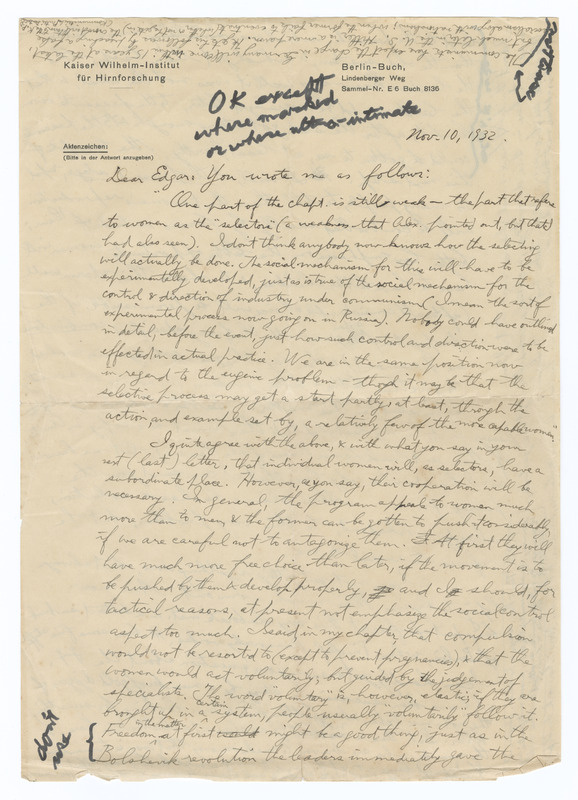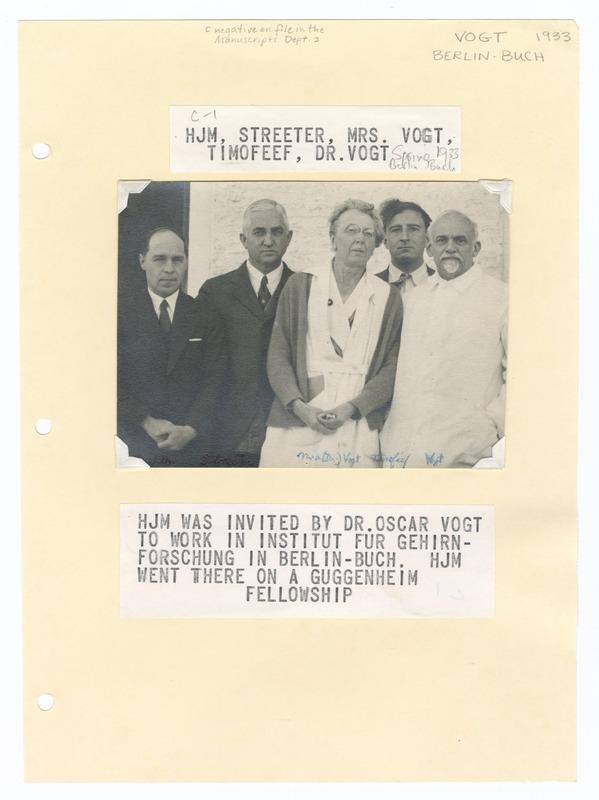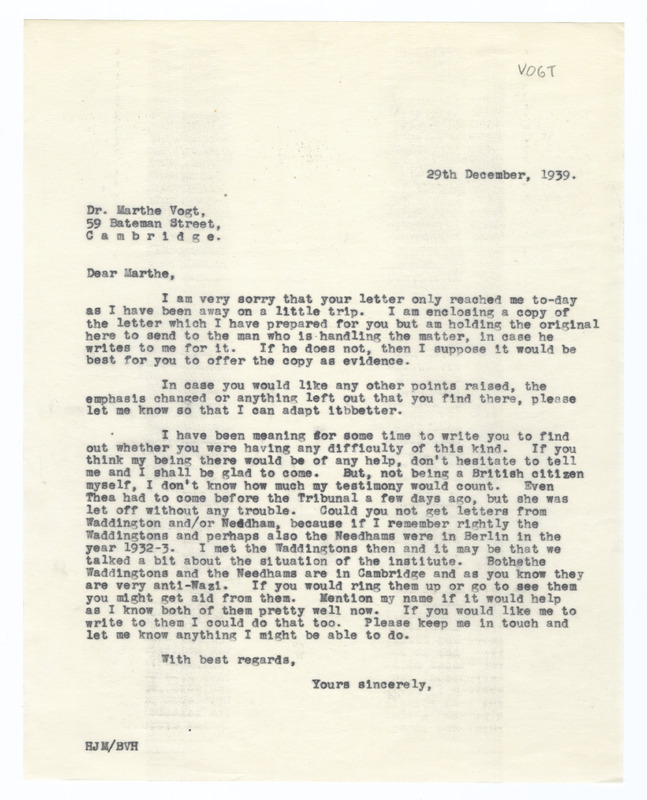

Muller was of course deeply averse to Hitler's politics. However, there was a sense at the time that Hitler was more of a distraction or a buffoon than anything. In this letter to Edgar Altenburg, Muller expresses these sentiments and his hopes for an ascendent left in Germany.
Muller's biographer Elof Carlson argues that this paper heralds a certain exhaustion with the politics and culture of the United States. In short, Muller cound not wait to get out of the country and left for Germany on his Guggenheim fellowship on September 5th, 1932. Prior to heading to Berlin, he stayed with his sister Ada in Munich for a few weeks of needed rest. Muller's wife and young son stayed behind in Texas. Retrospectively, 1930s Germany may seem an odd destination for an individual exasperated by the right-wing tendencies of the likes of Herbert Hoover. However, the communist party was powerful in Berlin at the time and there was a strong sense in the 1920s and early 1930s that communism or socialism could be brought to Germany.

From the left, Muller, George Linius Streeter, Cecile Vogt-Munier, Nikolay Timofeev-Ressovsky, and Cecile's husband and fellow scientist Oskar Vogt in front of the Kaiser Wilhelm Institute for Brain Research. The Kaiser Wilhelm institutes were state supported research institutes led by prominent scientists. They still exist, now called Max Planck Institutes after the famous German physicist.
More to the point for Muller, Berlin had a fantastic genetics laboratory led by Soviet geneticists Elena Timofeev-Ressovsky and Nikolay Timofeev-Ressovsky at the Kaiser Wilhelm Institute for Brain Research. Nikolay was another radiation genetics researcher and had extensive contacts with the physics community that Muller was eager to tap.

In a statement attached to this letter vouching for the character of Cecile and Oskar Vogt's daughter, Marthe, Muller recounts his experiences during the raid. Such tactics were a core part of the Nazi solidification of power.
Berlin did indeed provide enormous research opportunities, but Muller's visit was ill-timed. The Nazi program of strategic street violence and the coopting of leftist rhetoric crippled Berlin's communist party and on January 30th, 1933 Adolf Hitler was appointed chancellor of Germany. From book burnings to Wagner operas, Muller witnessed up close the rise of Nazism in Berlin. Muller's sister Ada and her German husband Georg Griesmaier left Munich for New York. Muller's co-workers, Regina Fischer, who was of Jewish descent, and her husband Gerhardt Fischer, left for the Soviet Union where they would work with Muller. The directors of the Kaiser Wilhelm Institute, Cecile and Oskar Vogt, refused to support the Nazis or implement their discriminatory policies at the Institute. In March of 1933, the Nazis raided the Vogt's residence at the Institute while Muller was there.